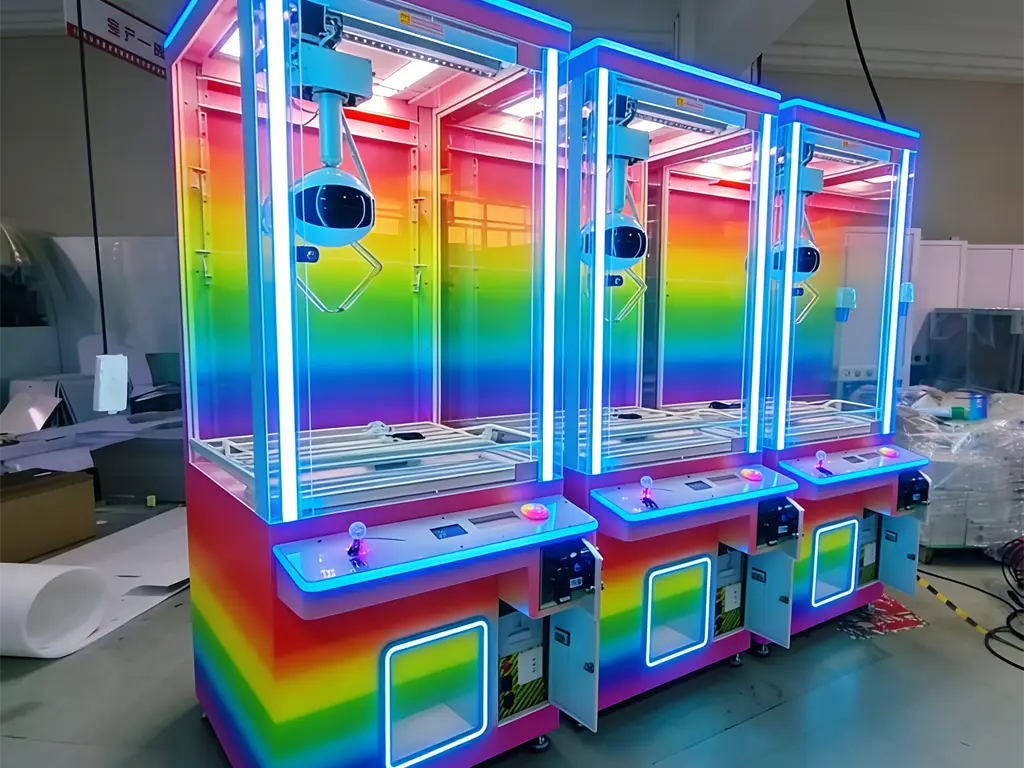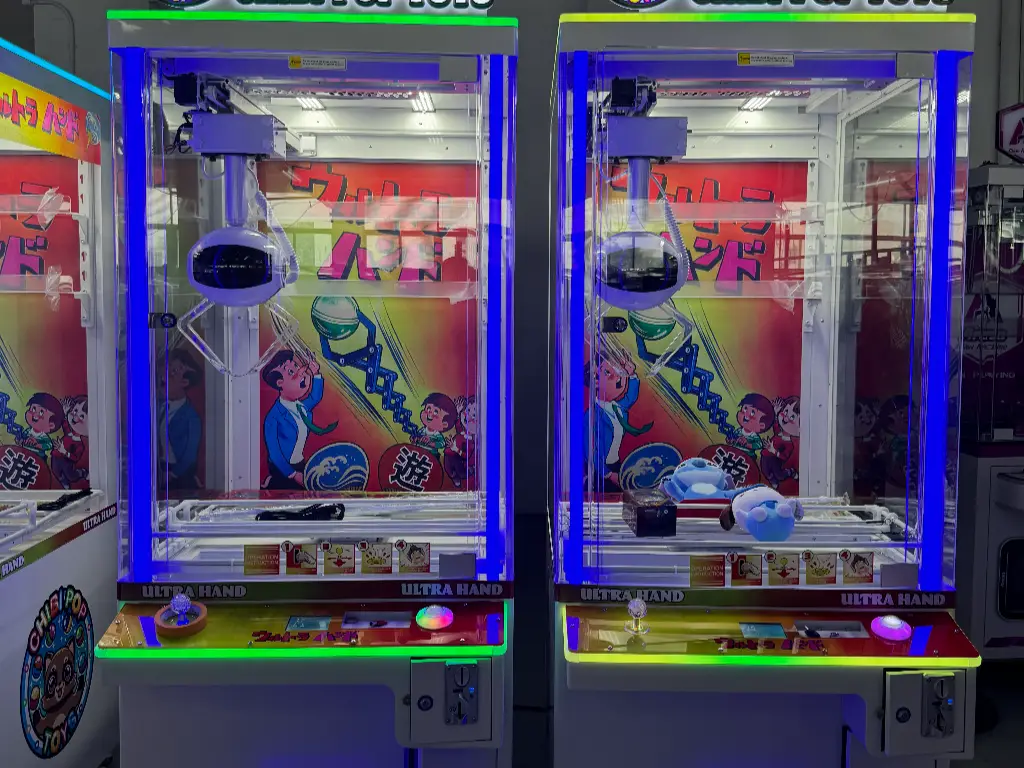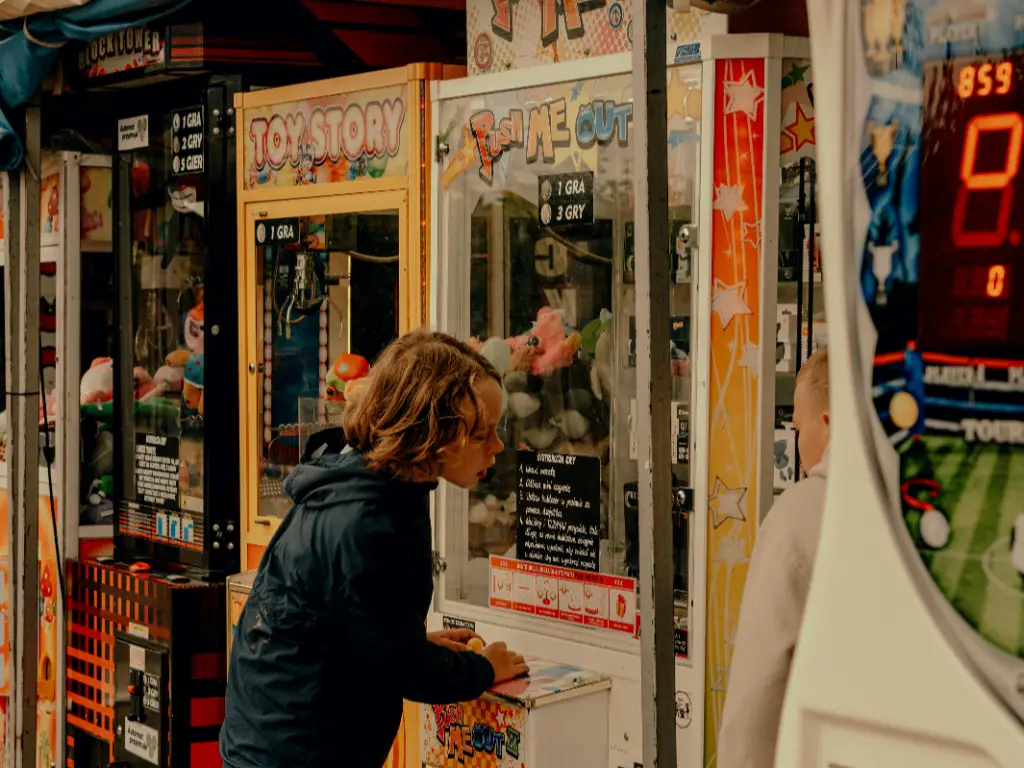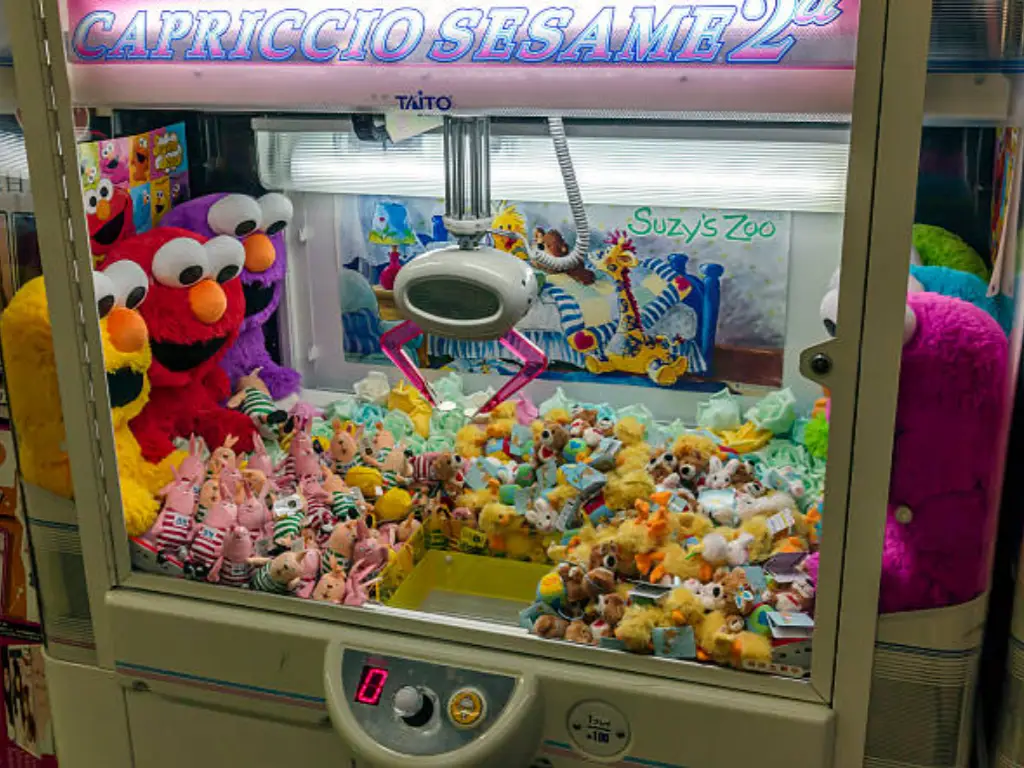Ahorcado, la máquina de garras! Esa caja fascinante de lujosos tesoros, Desafiando a los jugadores a probar su habilidad (Y tal vez un poco de suerte) por un premio codiciado. Es un elemento básico en arcadas y fecs, un generador de ingresos probado, y una fuente de entretenimiento sin fin. Pero detrás de las luces intermitentes y la emoción de la victoria cercana se encuentra una pregunta con la que muchos operadores luchan: “¿Realmente necesito una licencia para tenerlos en mi establecimiento??”
Si estás buscando un simple “Sí” o “No,” Me temo que es un poco más complicado que eso. Piensa en EE. UU.. Regulaciones de la máquina de garras como una colcha de mosaico: cosidas junto con diferentes reglas y requisitos que varían significativamente, principalmente a nivel estatal y local. No te preocupes, aunque! Este artículo es su guía amistosa para navegar por este laberinto regulatorio., Ayudando a tu arcade, tienda de juegos, o los negocios de FEC permanecen cumplidos y mantengan esas garras agarrando legalmente.
Los EE. UU.. Marco regulatorio para máquinas de garras
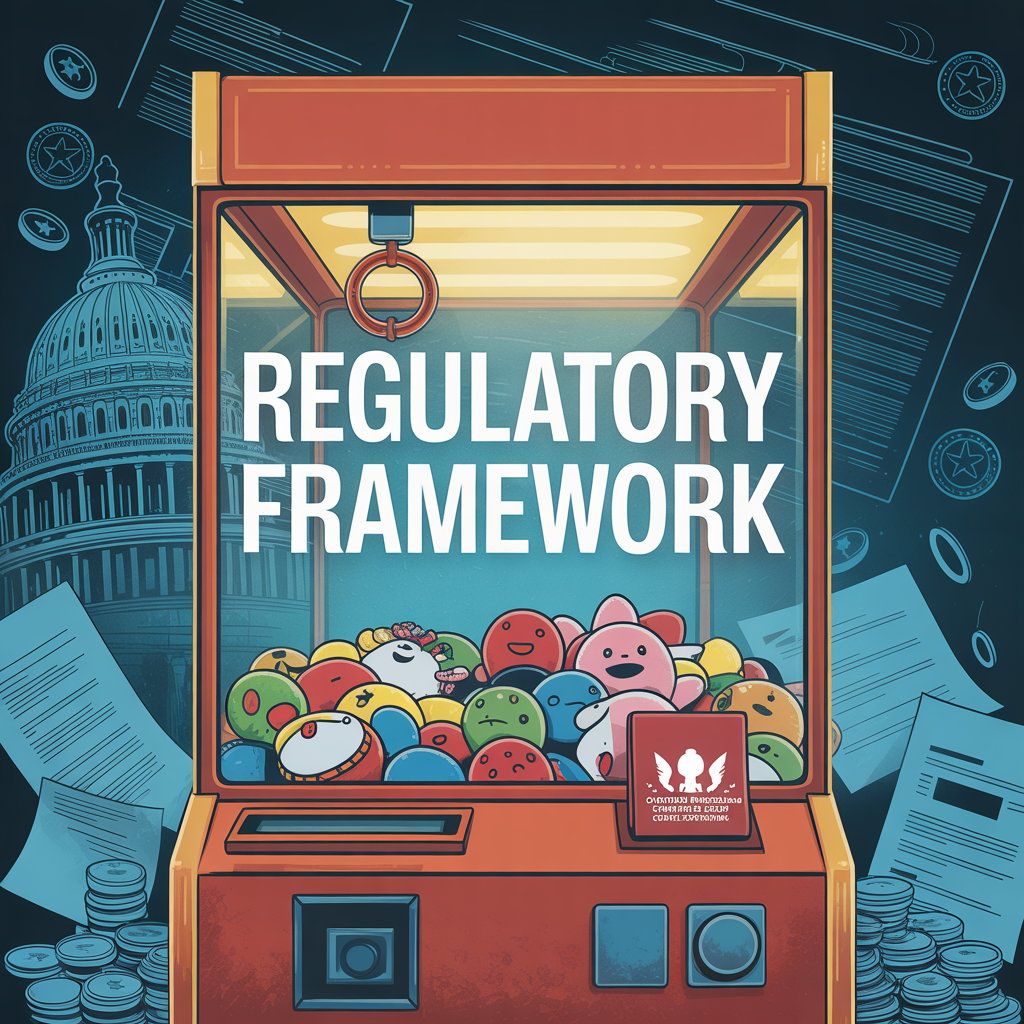
Lo primero es lo primero: Cuando se trata de máquinas de garras, La ley estatal es el rey. Los estados individuales tienen el poder principal para licenciar y regular dispositivos de diversión, y eso incluye nuestras queridas máquinas de garras. Esto significa que lo que está perfectamente bien en un estado podría necesitar un conjunto diferente de permisos o enfrentar reglas diferentes en otra.
Pero espera, Hay algunas consideraciones federales que debe mantener en su radar.:
- La Ley Johnson (Contexto histórico): Muy lejos 1951, Este acto prohibió el transporte interestatal de dispositivos de juego. Si bien su impacto directo en las máquinas de garras típicas es más limitado hoy (El FBI incluso se relajó en la aplicación de la ley 1973 ), Formó algunos de los primeros pensamientos en juegos operados por monedas y su potencial para el juego.
- Comisión de Seguridad de Productos del Consumidor (CPSC): Este es uno grande para tus premios! El CPSC regula la seguridad de los productos de consumo, especialmente juguetes destinados a niños 12 años de edad o menor. Piense en los estándares ASTM F963, que cubren cosas como la calidad del material (limpio y libre de infestación), y límites de plomo y otros metales pesados en pinturas y sustratos. El abastecimiento de premios seguros es crucial!
- Comisión federal (FTC): La FTC trabaja para evitar prácticas comerciales injustas o engañosas. Para operadores de máquinas de garra, Esto significa ser honesto en su publicidad, Cómo representa los premios, y la transparencia general de su operación. Piense en precios claros y no engañen a los jugadores sobre sus posibilidades de ganar.
Licencias y permisos que su negocio probablemente necesite
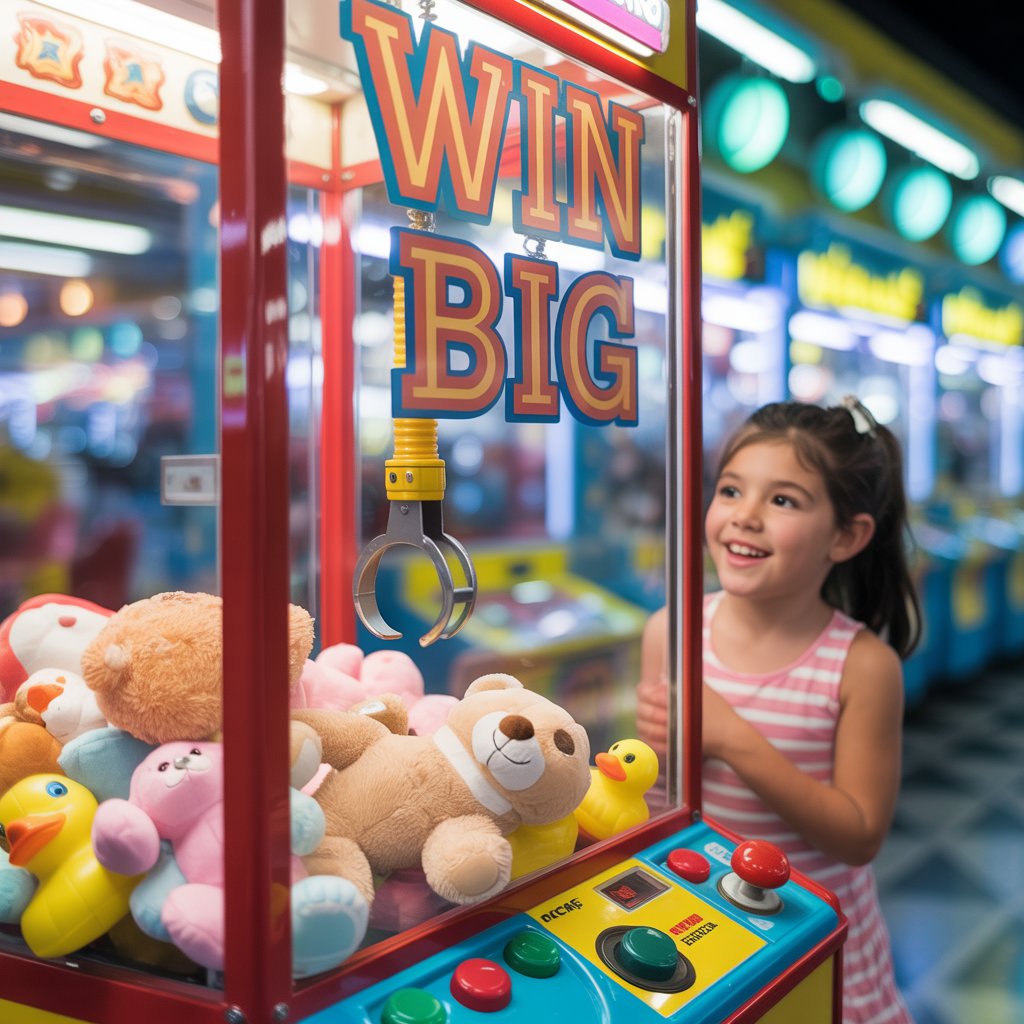
Está bien, Hablemos de lo esencial: Las licencias y permisos reales que probablemente necesitará para que sus máquinas de garra funcionen sin problemas.
La base: Licencia de negocio general Este es tu punto de partida. Casi cualquier negocio en cualquier estado o ciudad necesita una licencia comercial básica para operar legalmente. Los costos pueden variar, a menudo van desde $50 a $500, y a veces puede depender de factores como la cantidad de máquinas que tiene o sus ventas estimadas. El procesamiento de la aplicación generalmente lleva algunas semanas, y muchos estados ahora ofrecen sistemas de aplicación en línea útiles.
Específico: Licencia de dispositivo de diversión Más allá de la licencia comercial general, La mayoría de los estados requieren un “Licencia de dispositivo de diversión” para operar máquinas de garras. Las tarifas para esto pueden ser por máquina, a menudo en el $50 a $200 anualmente rango. Los requisitos de licencia también pueden depender del valor de los premios que ofrece, el número y el tipo de máquinas, y si se necesitan inspecciones de seguridad.
Obligaciones fiscales: Permiso de impuestos sobre ventas Si sus máquinas están generando ingresos (y esperamos que sean!), Es probable que necesite un permiso de impuestos sobre las ventas para recaudar y remitir el impuesto sobre las ventas al estado. Las tasas del impuesto a las ventas pueden ser un objetivo móvil, variando significativamente por el estado e incluso localmente, Generalmente que va desde 4% a 10% o a veces más alto en áreas específicas. Obtener este permiso generalmente implica aplicar a través de la autoridad fiscal de su estado, un proceso que puede tomar 2 a 6 semanas.
No olvides el local! Ordenanzas de la ciudad y el condado Esto es súper importante! Incluso si has salpicado todos tus “i”S y cruzó todo tu “T”s a nivel estatal, tú debe Revise sus reglas locales de la ciudad y el condado. Estas ordenanzas locales a veces pueden ser más estrictas o agregar capas adicionales a las leyes estatales.. Puede que encuentres:
- Límites en la cantidad de máquinas permitidas por ubicación (P.EJ., Algunas ciudades más grandes podrían limitarlo 5-10 máquinas).
- Restricciones sobre dónde se pueden colocar máquinas (P.EJ., No bloquear las salidas de emergencia o las entradas principales).
- Horas de operación reguladas, quizás para minimizar la interrupción a los residentes cercanos.
Es tu máquina de garras un juego de habilidad o casualidad?
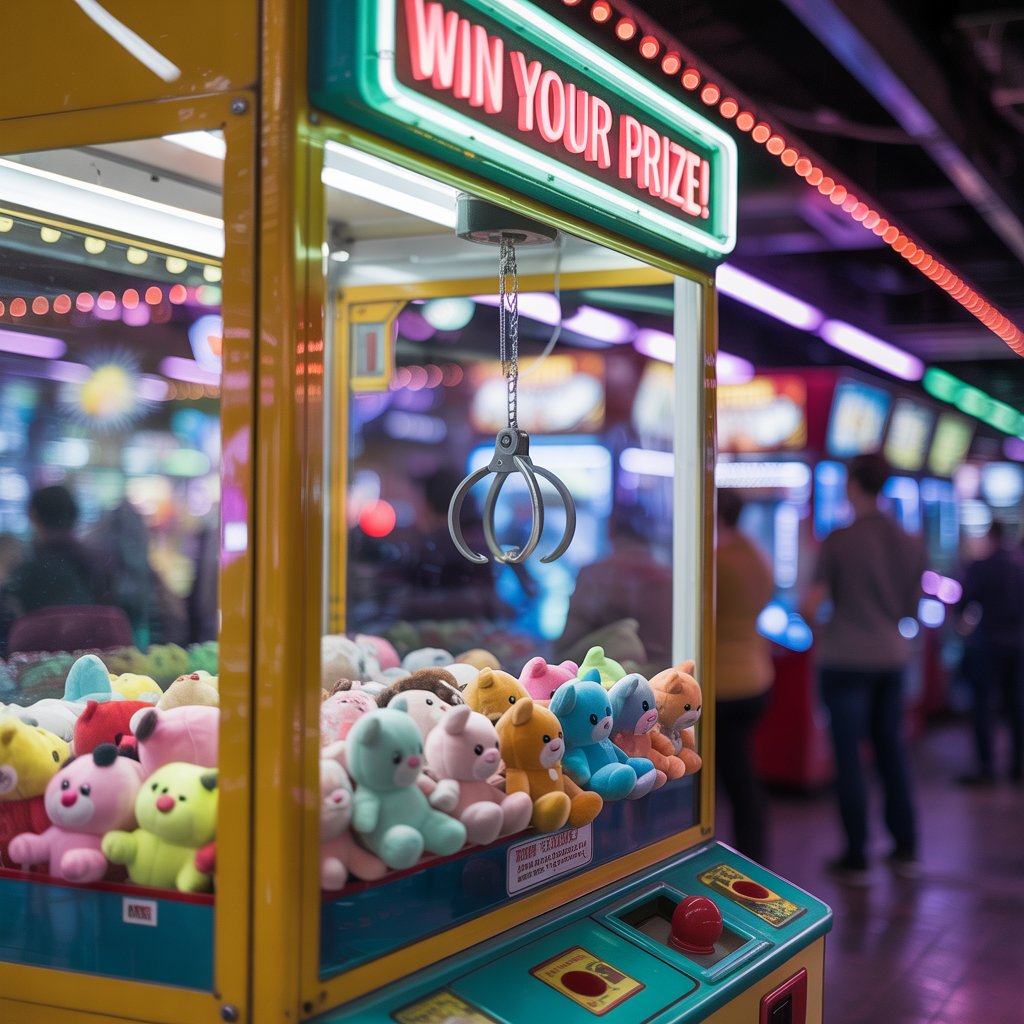
Aquí es donde las cosas se ponen realmente interesantes y legalmente sensibles. Cómo su estado ve su máquina de garras, como un “Juego de habilidad” o un “juego de azar” - es un trato masivo.
Definición de los términos:
- Juego de habilidad: El resultado está determinado principalmente por las habilidades físicas o mentales del jugador., coordinación, y estrategia. Piense en el tiempo que cae la garra justo!
- Juego de azar: El resultado se debe principalmente a la suerte o al azar., con la habilidad del jugador que tiene poco o ningún impacto. Esta categoría a menudo se trata como el juego.
Por qué esta distinción es crucial para los operadores: Los estados clasifican las máquinas de garras de manera diferente. Si su máquina se considera un “dispositivo de juego” Porque se ve como un juego de azar, Podrías enfrentar serios problemas: fuertes multas, convulsiones de máquinas, Perder sus licencias, y en algunos casos, incluso cargos criminales. Es una distinción que no puedes permitirte equivocarte.
Influencia del operador & Responsabilidad: Aquí hay un punto clave: la configuración en su máquina de garras, como la fuerza de la garra y la relación de pago (Con qué frecuencia está programada para permitir una victoria), puede difuminar estas líneas. La mayoría de las máquinas permiten a los operadores ajustar estas configuraciones. Si configura sus máquinas para que sea prácticamente imposible de incluir, Incluso si un jugador tiene habilidades increíbles, Los reguladores podrían argumentar que ya no es un juego de habilidad, sino uno de los casos, controlado por la programación de la máquina.
Ejemplos clave & Lo que significan para tu negocio
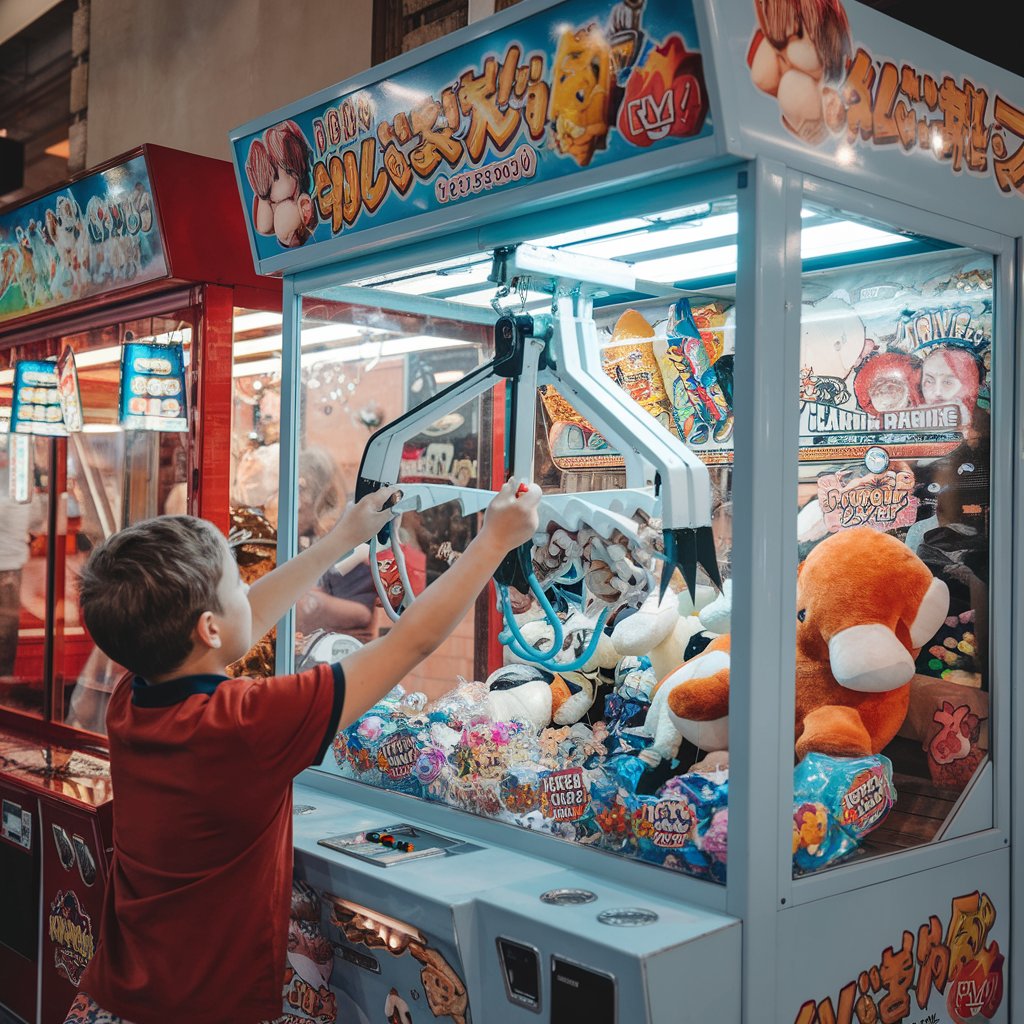
(Descargo de responsabilidad amistoso: Esta es una instantánea, no la imagen completa! Las leyes cambian, y las reglas locales agregan otra capa. Siempre, Siempre verifique las leyes específicas en su estado y ciudad.)
Veamos cómo algunos estados se acercan a las máquinas de garras para darle una idea de la variedad que existe.:
Estados con supervisión estricta:
- California: A menudo toma una postura muy estricta. La sección 330b del Código Penal de California puede clasificar las máquinas de garras como máquinas tragamonedas, que generalmente están prohibidos. Si opera otros dispositivos de diversión, Espere altas tarifas de licencia (potencialmente hasta $300 por máquina) e inspecciones de seguridad anuales obligatorias. Las prácticas injustas también pueden conducir a multas.
- Nueva York (Estado & Ciudad de Nueva York): Necesitará licencias comerciales a nivel estatal. Ciudad de Nueva York, sin embargo, tiene sus propias ordenanzas locales muy detalladas. Estos pueden incluir la necesidad de un certificado de ocupación válido, Notificando a la junta comunitaria local sobre las nuevas solicitudes de licencia, transporte de un seguro de responsabilidad civil significativo (pensar $1 millones por ocurrencia o un $2.5 Millones de bonos), Pasando inspecciones eléctricas y de edificios, mostrando claramente reglas y precios, no tener premios en efectivo, e incluso restricciones de edad y tiempo para menores en arcadas durante el horario escolar.
Estados con reglas más indulgentes a nivel estatal (Pero las reglas locales aún se aplican!):
- Texas: Generalmente, Texas no requiere un estado licencia solo para máquinas de garras; Una licencia comercial general a menudo es suficiente. Pero (Y es un gran pero!), operadores debe cumplir con las regulaciones de la ciudad o condado en las que están. Si está utilizando una máquina de garras en un evento privado que se espera que realice $500, Es posible que necesite una licencia de evento temporal.
Estados con marcos regulatorios únicos:
- Florida: Espere requisitos para licencias e inspecciones regulares para garantizar la equidad y la seguridad.. Florida también exige un seguro de responsabilidad civil significativo para los operadores de dispositivos de diversión, al menos $1 millón. Y si estás atrapado con “infiel” o máquinas de configuración injustamente? Las multas pueden llegar tan altas como $10,000.
- Michigan: Prepárese para las inspecciones estatales anuales para su equipo de diversión, incluyendo máquinas de garras. Verificarán cosas como la fuerza de la garra y la duración del juego, con costos de inspección potencialmente que van desde $200 a $500 por máquina.
- Nueva Jersey: Aquí, Las máquinas de garras caen bajo el alcance del “Comisión de control de juegos de juegos legalizados”. Esto en sí mismo sugiere un enfoque más cauteloso, Tratarlos más como juegos con un componente casual. Incluso ha habido propuestas legislativas para garantizar.
- Ohio: Ohio tiene un sistema claro para “Máquinas de diversión basadas en habilidades” (Sbams), y las máquinas de garras generalmente se clasifican como SBAM de tipo B. Las reglas del premio son estrictas: Solo mercancía (Sin efectivo, tarjetas de regalo, alcohol, etc.), y el valor mayorista de un premio de una sola obra no puede exceder $10.
- Illinois (Estado & Ciudad de Chicago): A nivel estatal, el tablero de juegos de Illinois (Arriba) no suele licencia “solo diversión” dispositivos; Las preguntas de las calcomanías de impuestos van al Departamento de Ingresos. Sin embargo, La ciudad de Chicago tiene sus propias reglas muy específicas.. Por un Juego de grúas para ser legal en Chicago, debe estar predominantemente basado en habilidades, Ofrecer solo premios de mercancías, Y el valor mayorista de ese premio no puede ser más que $5.00 por jugada.
Las mejores prácticas operativas para el cumplimiento & Juego limpio
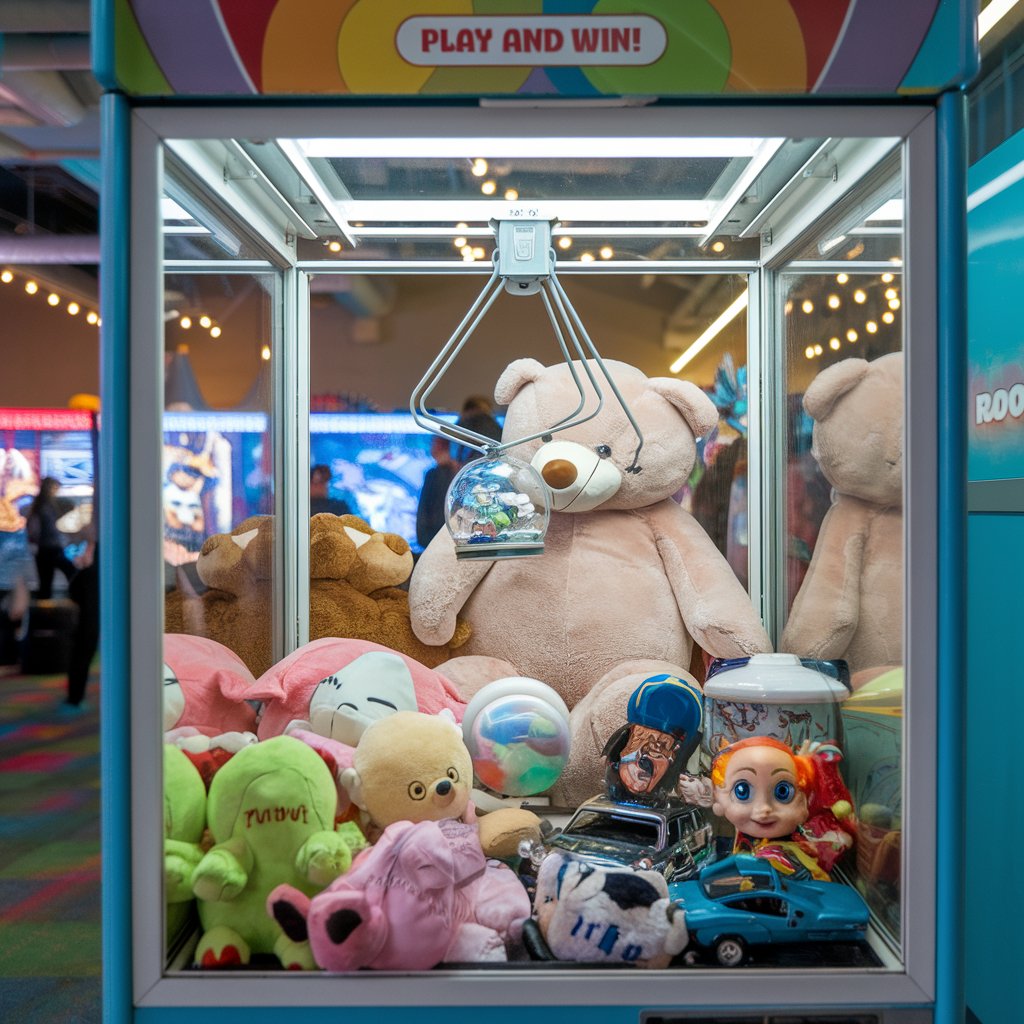
Obtener las licencias es solo el paso uno. Operar sus máquinas de garras de manera responsable y justa es un compromiso continuo.
Configuración de la máquina, Transparencia, y oportunidad justa:
- Fuerza de garra & Ganar proporciones: Aquí es donde la ética cumple con la legalidad. Mientras pueda ajustar la configuración , Hacer juegos prácticamente imposibles de ganar es una receta para clientes infelices y posibles problemas regulatorios. Algunos operadores apuntan a una relación de victorias donde, Por ejemplo, Se gana un premio 1 fuera de cada 8 Juega en promedio, Pero esto es ajustable.
- Normas de la industria (P.EJ., Aama): Organizaciones como la American Amusement Machine Association (Aama) tener códigos de conducta. Sus miembros se comprometen a no fabricar o adquirir juegos a sabiendas que no ofrecen a un jugador un “Justo posibilidad de tener éxito con cada juego jugado” y donde la habilidad influye en el resultado.
- Transparencia con jugadores: Muestra claramente las reglas de juego, el costo por juego, e información sobre los premios. En algunos lugares, como NYC, Este es un requisito. Algunos operadores incluso comparten abiertamente las probabilidades de su máquina si.
Gestión de premios: Valor, Tipo, y seguridad:
- Adherirse a los límites de valor: Muchas áreas limitan el valor de los premios para mantener las cosas en el “entretenimiento” zona. Vimos a Ohio $10 Límite al por mayor y Chicago $5 límite. Históricamente, Incluso el compromiso de la Ley Johnson mencionó los premios por valor $1 o menos. Algunos estados pueden tener una gorra general, rara vez excediendo $500.
- Tipos de premios prohibidos: Sepa lo que no poder oferta. El efectivo suele ser un no-go, y a menudo tarjetas de regalo, alcohol, y el tabaco también están fuera de los límites.
- Cumplimiento de CPSC para premios: Esto es crítico! Asegúrese de todos sus premios, Especialmente juguetes para niños 12 y bajo, cumplir con los estándares de seguridad federales como ASTM F963. Esto incluye cosas como la calidad del material, pinturas no tóxicas (Límites en el plomo, etc.), y seguridad general de los peligros.
Seguridad ante todo: Inspecciones y seguros:
- Inspecciones de seguridad obligatorias: Prepárese para estos si su estado o ciudad los requiere. Pueden cubrir aspectos mecánicos y eléctricos de la máquina..
- Seguridad eléctrica: Incluso si no lo exige una inspección específica, Todas sus máquinas deben cumplir con los estándares básicos de seguridad eléctrica para evitar riesgos.
- Seguro de responsabilidad civil: Esto es cada vez más un requisito y siempre un movimiento comercial inteligente. Vimos Florida y NYC que requirieron cobertura sustancial. (P.EJ., $1 millón). Te protege a ti y a tus clientes.
Una nota sobre uso privado/domicilio (Y cuando cruza a los negocios)

Generalmente, Si alguien posee una máquina de garras para puramente privado, diversión no comercial en casa, No necesitan todos estos negocios y licencias de diversiones. Sin embargo, La máquina aún debe cumplir con los estándares de seguridad eléctrica.
Precaución para los operadores: La línea se cruza si eso “privado” La máquina comienza a ser utilizada comercialmente. Si alquila máquinas para fiestas y tarifas de carga, o si alguien con una máquina en casa comienza a cargar amigos para jugar, que se puede ver rápidamente como una operación comercial. Esto podría desencadenar los requisitos de licencia y impuestos. Por ejemplo, en Texas, Incluso un evento privado que usa una máquina de garras podría necesitar una licencia de evento temporal si se espera que las ventas excedan $500.
Recomendaciones estratégicas para los operadores & Agentes
Entonces, ¿Cómo te mantienes en el lado derecho de todas estas reglas?? Aquí está tu plan de juego:
Diligencia debida de inmersión profunda: Antes de colocar una sola máquina, Haz tu tarea! Investigar federal, estado, Y especialmente tu local Leyes de la ciudad y el condado. Esto es absolutamente no negociable.
Invierte en asesores legales: Considere seriamente hablar con un abogado que se especialice en derecho de diversión y juego en las áreas específicas donde opera. Pueden ser invaluables para navegar las complejidades.
Las mejores prácticas de cumplimiento continuo:
- Mantenimiento de registros meticuloso: Mantenga registros detallados de todo: Tus licencias, informes de inspección, ganancia, inventario de premios (incluidos los costos), e incluso registros de la configuración de su máquina.
- Operaciones transparentes: Utilice la señalización clara para las reglas y los precios. Apuntar a un juego justo.
- Capacitación integral del personal: Asegúrese de que su equipo comprenda sus políticas de cumplimiento y la importancia de la operación justa.
- Adhesión a los códigos de la industria: Seguir las directrices de organizaciones de la industria respetadas como AAMA puede reforzar su reputación y demostrar un compromiso con la operación ética.
- Auditorías de cumplimiento regulares: No solo lo configures y lo olvides. Revise periódicamente sus prácticas y verifique las regulaciones nuevas o modificadas..
Jugando por las reglas para el éxito a largo plazo
Máquinas de garras operativas en los EE. UU.. es definitivamente un viaje a través de un paisaje regulatorio complejo y variado. No hay una respuesta única para las licencias.
La conclusión clave? Investigación proactiva, un compromiso para comprender las reglas en cada Ubicación que opera, y el cumplimiento inquebrantable son sus mejores apuestas para un legal, rentable, y negocio de máquinas de garras sostenibles. El mundo de las regulaciones siempre está evolucionando, especialmente con la protección del consumidor y las nuevas tecnologías en mente, Por lo tanto, mantenerse informado y adaptable es crucial para el éxito a largo plazo en el divertido y emocionante negocio de Arcade y FEC Entertainment!












